Expert Guide to Project Management
Project management is one of those terms that can conjure up all sorts of negative images and worries for the average self builder.
It is often associated with large scale, difficult tasks and carries implicit references to risk and the potential for things to go horribly wrong.
When we think of project management, we often think of big schemes like the Millennium Dome, nuclear power stations and the HS2 rail link.
In reality, project management applies to small-scale as well as large-scale activity.
So even projects that are relatively small – and that includes a domestic self-build or renovation – need to be managed. But by whom? The question is whether to risk having a go ourselves, or leave it to the pros.
The basics of project management
In simple terms, project management encompasses the skills needed to produce a defined outcome (a new house) within the constraints of the resources available (your budget) and within a certain timescale.
| Hands-on or Hands-off?
Should you get really involved in managing your build or stand back and let the experts deliver? Understand the options and which is right for you at Build It Live. Different exhibitors specialise in the various routes – from complete turn-key builds to hands-on support to maximise your chances of success. Explore all the options in one place – only at Build It Live. Build It Live takes place three times a year in Kent, Oxfordshire and Exeter. The next show will be on 8th and 9th June 2024, in Bicester, Oxfordshire. Claim a pair of free tickets today and start planning your visit. |
The latter can be flexible, but for some reason usually manifests itself as “in the house before Christmas”. We often encounter project management in our day-to-day lives without a second thought.
Arranging a family holiday, planning a wedding and organising the office party are all projects that we are happy to approach with little or no prior experience – and more often than not, with great success.
Building a house is no different. People have constructed homes for centuries. Quite a few builders and tradesmen know how to do it rather well because, for most projects, it’s not rocket science.
Leaving aside one-off conceptual designs and instead focusing on the typical houses that we might contemplate building for ourselves, the sequence of events is based on common sense.
The real art is in finding the right materials and people to do the job to the standard you require, for a price you can afford.
Who can project manage?
There are undoubtedly professional project managers out there who will be able to take day-to-day control of your build, but the clue is in the ‘professional’ bit.
They don’t come cheap and most self builders have a finite budget, the majority of which needs to be allocated to the physical construction by way of materials and labour.
This prompts most of us to either undertake the role of project manager ourselves or to entrust the role to a general builder – someone who knows what they are doing and has the contacts to get the right trades at the right price.
I have long argued that for the typical self builder contemplating a straightforward new build, this is a sensible route to take, as long as you select the right builder.
Read more: Self Build Routes & Costs
Remember though, the best builder is not necessarily the cheapest. While they need to be affordable, it is just as important that they are capable of doing a good job. Gauging that means doing your homework by asking them for references and following them up.
A good builder will always want to do a high-quality job as his next contract depends on it – after all, you’re the one who will be providing the references to the next clients.
Alternatively, you can ask your architect to undertake the project management role. For complex designs or builds where there is identifiable risk, this is a sensible route.
Case study: Should my architect project manage my self build?John and Judith Turner had almost given up hope that they would ever be able to build their own house. Their planning application to do just that on their previous East Sussex home’s tennis courts had been refused in 2009, so when John retired a couple of years later, they decided to up sticks. They moved to Wales to be nearer their daughter and her family, and bought a Georgian farmhouse to renovate. The couple hadn’t long finished the project when, in summer 2014, architect and friend Nick Lomax, from LCE Architects, called John out of the blue with a proposal. |
Architects often calculate their management fees as a percentage of the build costs (typically around 10% or so for a full service).
A common worry is that this incentivises the architect to ‘build big’ and specify expensive materials to maximise their potential return.
That said, in the recent downturn some architects have had a difficult time finding work, so they might be persuaded to do the work for a fixed fee, which gives you far more control over costs.
Should I hire a professional project manager?
So is it worth employing a professional project manager? A good one should save you some, most or even all of their fees by bringing greater efficiency to the site. By buying materials efficiently, avoiding costly delays and minimising rework, the build will be completed on time, on budget and with the minimum of fuss.
While professionals are available, they tend not to be used on the average self build project for the simple reason that they are often not on a large enough scale to make the necessary savings.
Paying, say, 10% of build costs in project management fees on a £200,000 build equates to £20,000, which pays for a kitchen and bathroom on many projects. For large, complex or cutting-edge projects, I would suggest that hiring in an architect or project manager is money well spent.
Calling in the professionals can sometimes save the day. Talking to project manager Tim Hearne of Thyme Building Consultancy, for example, he explained to me how he was able to rescue a self build in north Essex where the client ran into difficulties with their main contractor.
Work had started on his client’s five-bedroom home in December 2011, but progress was slow and the build was only 65% complete 11 months later. Eventually, work ground to a halt and the contractor began demanding more money to complete the project.
Realising that things were getting out of control, the client called in Tim and his team. In taking over the management and administration of the project, Tim sourced a new main contractor.
Just two months later, the building was complete and ready to be occupied (surprise, surprise) just before Christmas 2012 – much to the homeowner’s relief.
There’s a legitimate argument that says if a project manager has the skills, knowledge and contacts to build a house, then they are better off simply building houses rather than acting as middlemen.
Well, that’s exactly what many project managers do, and you will often see general builders presenting themselves as project managers. If there is one thing builders hate, it’s having to pull together endless quotations and compete with other firms with no certainty that they will get the job.
These days, you will often find project managers who, in exchange for a guarantee that they will be awarded the contract, will agree an acceptable ceiling price for the whole job but will then seek quotations for the individual trades and pass on some of any savings made to the client – a win-win situation.
You know the most it will cost you to build, but the contractor has an incentive to get the best prices from the trades he hires because he can increase his own margin while saving you money. What’s not to like?
Should I self manage my project?
The final option is to take on the project management role yourself.
A surprising number of people take the plunge and successfully complete their project, although most will tell you that it takes up virtually all of their time.
Because of this, first-time self builders often use one of the established package companies such as Potton or D&M Homes, which have experts on hand to help as much or as little as required throughout the project.
Then, if they decide to move on to another self build, confidence levels are that much higher because the processes involved are clearer and easier to address the second time round.
Case study: Should I project manage my self build?Patience is always a virtue when it comes to self building, and this was certainly the case for Paul Rea and Nicola Jones, whose desire to create a new sustainable home took 13 years to come to fruition. With their combined experience and interest in sustainable transport and renewable energy, Paul and Nicola were determined for their new abode to be as low-impact and energy efficient as possible. Eventually, they were able to put their scheme out to tender, and approached three local building firms. This was at a point when the industry was coming out of recession, so unfortunately all three companies went with better offers than Paul and Nicola’s project. Instead, the couple decided to take on the project management of the build, doing as much of the work as they could themselves. |
If you do decide to project manage your own build, then remember that you are taking on responsibility for everything that happens – in other words, the buck stops with you.
It may seem daunting, but when you are writing the cheques, you will be acutely aware that it’s your money that you are paying out, a fact that tends to concentrate the mind.
Of course, the trade-off is that it will take up much of your free time, but you will have a keen interest in making sure that you are getting value for money. You will be surprised at just how empowering this is and how much you are capable of.
The plus side to going it alone, of course, is that by taking on this risk you will inevitably save significant amounts of money. Not forgetting that it is immensely rewarding when you see the end result – a perfect new home, made to your exact specifications, that is only there because you made it so.
Main image: Phil Raby
Need more advice about project management?Build It’s Self Build Virtual Training will give you the detailed know-how to successfully realise your dream home. Our interactive courses are presented by Build It’s expert contributors and designed to give you the key nuggets of knowledge you need – all from the comfort of your own home. Our courses take place online and allow for audience participation and experience sharing. Use the code TWENTY for 20% off. |

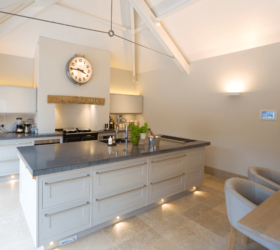





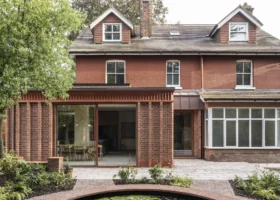



























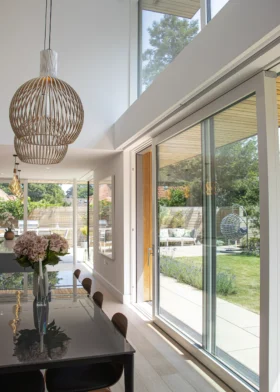


















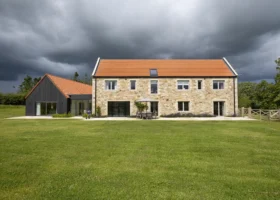






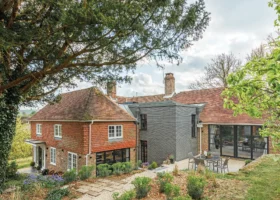





































 Login/register to save Article for later
Login/register to save Article for later





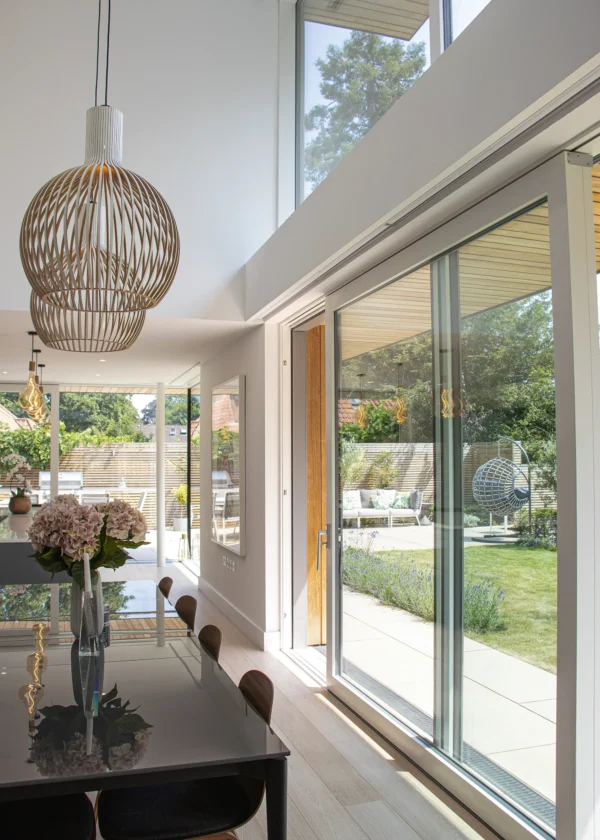









Comments are closed.